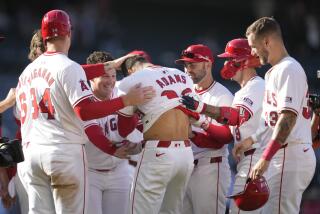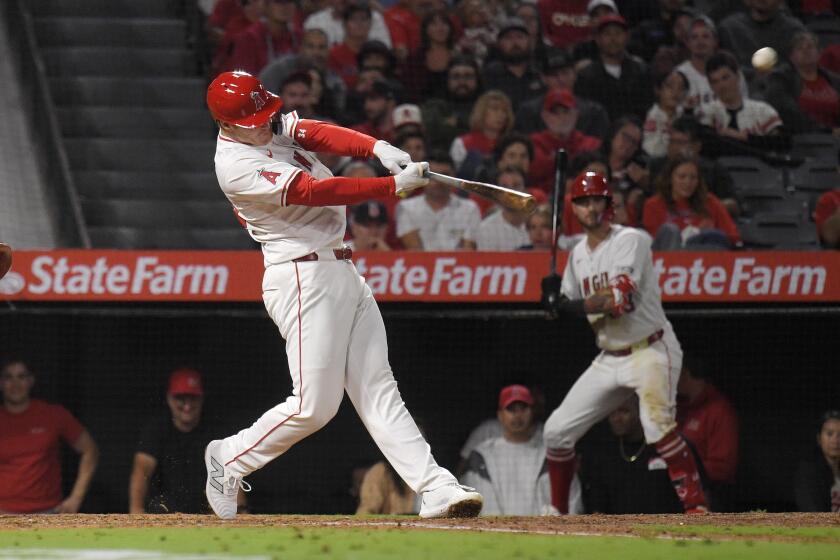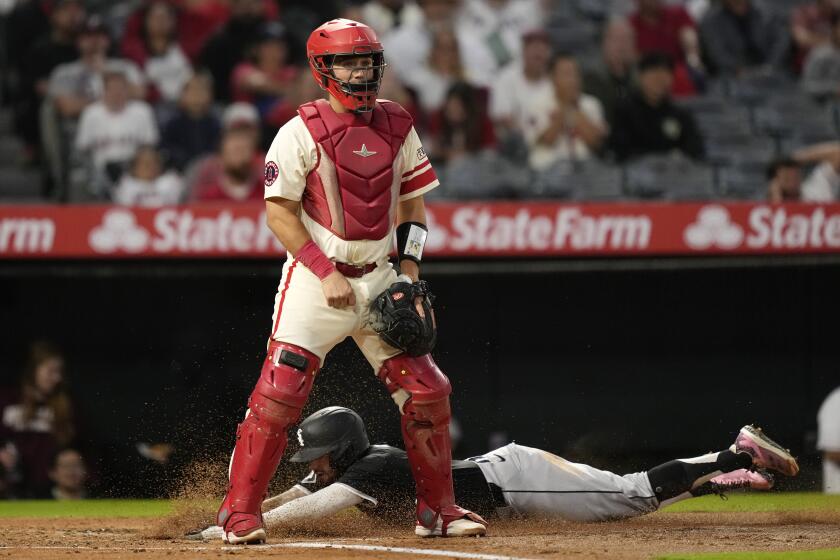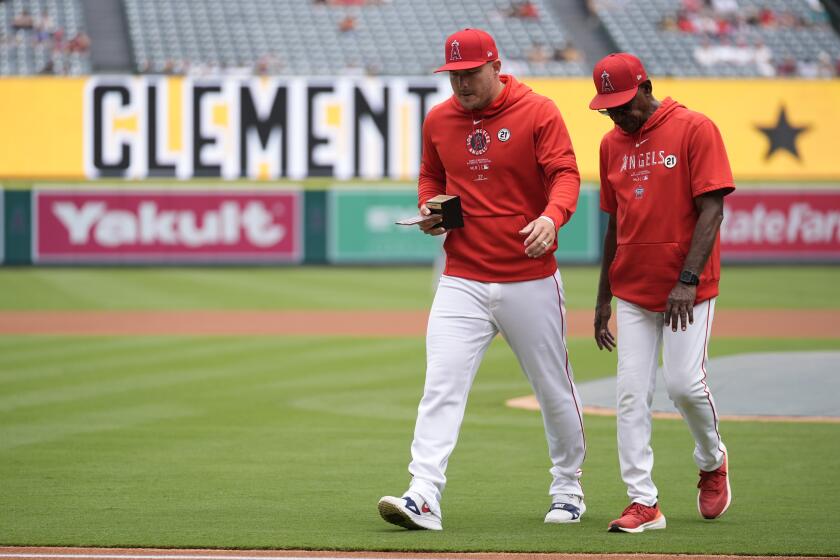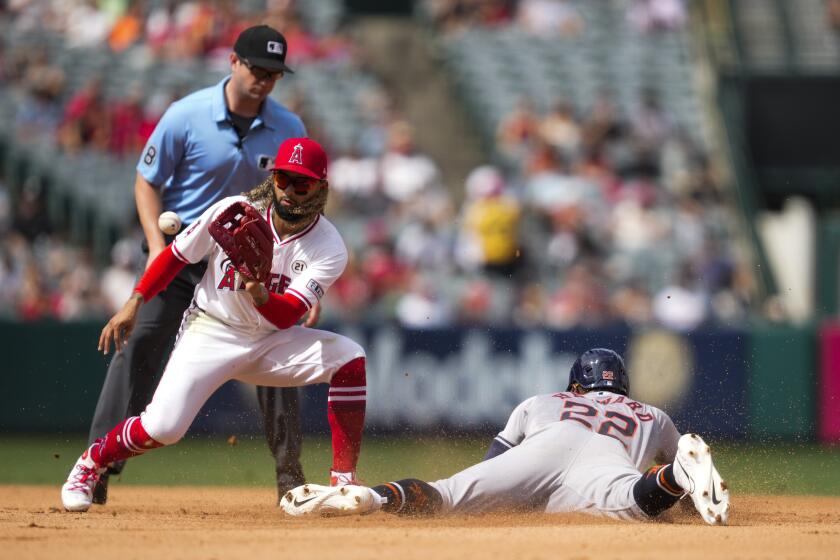Matthews, officials to meet over HGH case
The baseball season has come and gone since Gary Matthews Jr. was alleged to have ordered a shipment of human growth hormone. Today, the Angels’ center fielder is scheduled to discuss that report behind closed doors at baseball’s New York headquarters.
Paul Byrd, the pitcher formerly with the Angels and currently with the Cleveland Indians, is expected to follow Matthews to the commissioner’s office later this month. Byrd has acknowledged using HGH but said he did so under doctor’s orders and with baseball’s consent; baseball officials have denied the latter claim.
The Matthews interview comes at the start of an off-season in which drug-related stories could dominate the headlines. The San Francisco Chronicle, citing documents in the ongoing national investigation associated with Matthews and Byrd, reported Tuesday that former Seattle Mariners outfielder Jose Guillen and former major leaguers Matt Williams and Ismael Valdez ordered HGH.
By the end of the year, former Sen. George Mitchell is expected to release the report of his investigation into steroids in baseball, with the possibility that he could provide evidence linking many players to steroid use.
The Matthews meeting was confirmed by a baseball source, speaking on condition of anonymity. Scott Leventhal, the agent for Matthews, did not return a call for comment.
It is uncertain whether Matthews will be asked simply about the February SI.com report that alleged he was sent a shipment of HGH in 2004 or whether baseball officials have obtained documents that substantiate his involvement with HGH, either for one shipment or more.
Matthews would join Rick Ankiel of the St. Louis Cardinals, Jason Giambi of the New York Yankees, Troy Glaus of the Toronto Blue Jays and Jay Gibbons of the Baltimore Orioles, all linked to steroids or HGH in published reports, in meeting with representatives of the commissioner’s office.
Giambi is the only active player known to have met with Mitchell, upon the request of Commissioner Bud Selig. No suspension or other discipline has been announced for any of those players.
Selig has not ruled out punishment for illegal use of performance-enhancing drugs, even if baseball did not expressly ban a given substance at the time.
Baseball did not ban HGH until 2005 -- and still does not test for HGH, citing the lack of a reliable and widely available test -- but the use of HGH and steroids without a legitimate medical prescription remains illegal. Baseball did not test for steroids until 2003 and did not impose suspensions on first-time offenders until 2005.
The Chronicle reported that Guillen ordered steroids and HGH from 2002 to 2005, during which time he played for the Arizona Diamondbacks, Cincinnati Reds, Oakland Athletics, Angels and Washington Nationals. The Chronicle also reported Williams and Valdez placed orders in 2002 -- HGH and steroids for Williams, then with the Diamondbacks, and HGH for Valdez, then with the Texas Rangers.
Baseball’s drug policy, last revised after the 2005 season, mandates a suspension of 50 games for a player testing positive for the first time and 60 to 80 games for “possession or use of any prohibited substance.”
Matthews has discussed the report publicly only once. In March, after a delay that angered Angels owner Arte Moreno, Matthews issued a statement in which he said, “I have never taken HGH.” He refused to say whether he had ever ordered or received HGH.
In his statement, he explained the delay: “I needed to try to learn whether anybody in authority -- in or out of baseball -- felt they had reason to accuse me of anything with regard to HGH. If they did, I would have to deal with that. It has taken me, and those representing me, 16 days to make certain that’s not the case.”
More to Read
Go beyond the scoreboard
Get the latest on L.A.'s teams in the daily Sports Report newsletter.
You may occasionally receive promotional content from the Los Angeles Times.
